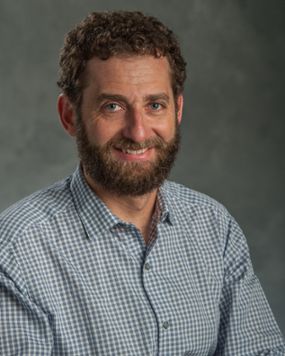MSU/IBM collaboration answers long-standing question about average quantum systems behavior
The question of how generic—or average—quantum systems behave has long been of interest in fields as diverse as quantum information science, quantum gravity and condensed-matter physics.
A collaboration between MSU mathematician Jeffrey Schenker and IBM researcher Ramis Movassagh, answers the question of how average quantum systems behave by formulating and proving a universality theorem for how a vast class of quantum processes, known as ergodic quantum processes, behaves over long periods of time. Their results were recently published in the journal Physical Review X.

“In nature, whenever one studies a quantum system, leakage of information to the environment is at play,” explains Schenker, a professor in the MSU College of Natural Science’s Department of Mathematics. "A key challenge is to address the effects of this leakage, or decoherence, in natural settings or account for it in the lab.”
Despite various efforts over the past two-plus decades, such results were previously obtained only for very special classes of quantum processes, with limited applicability to physically realistic settings.
Schenker and Movassagh achieved their results by bridging the mathematical fields of dynamical systems and random matrix theory to quantum information science. They found that ergodic quantum processes exhibit irreversible changes induced by the environment.
“By bridging quantum information to the theory of dynamical systems, we address the behavior of quantum channels in a very general setting and in the presence of decoherence,” Schenker said.
_300x159.jpg)
In addition, Schenker and Movassagh proved a second theorem on matrix product states, which are the best-known formulation of the low energy states of low-dimensional quantum systems.
“For example, we show that the correlation functions decay exponentially, and we calculate entanglement entropies, which quantify the amount of quantum correlations present in quantum systems,” Schenker explained. “This work, to the best of our knowledge, is the first to shed light on the structure of correlations for a large general class of correlated matrix product states.”
These results could pave the way for advances in the understanding of quantum computing and dissipation, shed light on the stability of nonequilibrium quantum phases of matter, and better characterize the output of random circuits in near-term noisy quantum computers.
Banner image: MSU mathematician Schenker’s research focuses on mathematical physics, centered on the mathematical study of quantum mechanics and statistical physics. As a field, mathematical physics aims to produce mathematical results that illustrate theory or prove theorems. Credit: Shutterstock/Gonin